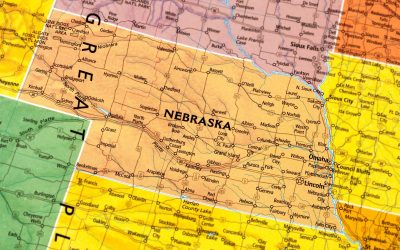Arkansas House Bill 1420: Everything You Need to Know.


What is Arkansas House Bill 1420?
Arkansas House Bill 1420 is a legislative measure focused on the regulation and recognition of emotional support animals (ESAs) within the state. The goal is to address various challenges faced by individuals with disabilities who rely on these animals for emotional and psychological support.
Key Points of the Bill:
- Objective: The bill aims to ensure the legitimate recognition of emotional support animals and establish clear guidelines for healthcare providers recommending ESA letters. It seeks to promote awareness about the rights of individuals relying on ESAs while preventing the misuse and misrepresentation of these animals.
- Impact: The legislation will affect a broad range of demographics, including individuals with disabilities, healthcare providers, and businesses that sell products related to ESAs.
Is Training Required for ESAs According to HB 1420?
Who Can Recommend an ESA Letter in Arkansas?
According to House Bill 1420, a “healthcare provider” in Arkansas can issue an ESA letter. This includes a wide range of professionals who are licensed, certified, or authorized to provide healthcare services. This means that various professionals, from therapists to physicians, can potentially recommend an ESA letter in Arkansas.
Criteria for Healthcare Providers
When healthcare professionals provide documentation for an ESA, they must meet specific criteria:
- Valid License: The provider must possess an active and valid license.
- Documentation Details: The ESA letter should include the effective date, license number, jurisdiction, and type of professional license held.
- Scope of Practice: The provider must be authorized to offer services within their professional scope in the jurisdiction.
- Established Relationship: A client-provider relationship must exist for at least 30 days prior to issuing the ESA documentation, except for individuals verified as homeless.
Homeless status can be confirmed through various means, including identification through:
- Local Homeless Management Information System
- A Continuum of Care
- Visual confirmation by a homeless services provider of individuals dwelling in specific homeless settings.
What Do Business Owners Need to Know About ESAs?
House Bill 1420 also outlines requirements for businesses selling products related to emotional support animals. If a business provides certificates, tags, vests, or other items for ESAs, they must give written notice to buyers. This notice should clarify that these items do not grant the same rights as service animals.
Key Points for Businesses:
- Transparency: The notice must explain that the ESA lacks the training required for service animals.
- Consequences of Misrepresentation: Misrepresenting an ESA as a service animal may result in civil penalties, under § 20-14-310. Ensuring proper understanding and usage of these designations.
How Does HB 1420 Impact Healthcare Professionals?
Conclusion
Frequently Asked Questions (FAQs)
Does Arkansas House Bill 1420 Cover Service Animals and Emotional Support Animals Differently?
Yes, under Arkansas House Bill 1420, there is a clear distinction between service animals and emotional support animals. Service animals are specifically trained to perform tasks for individuals with disabilities and are covered under the ADA, while emotional support animals provide comfort but do not require special training and have different legal protections.
How Can Landlords Verify an Emotional Support Animal Under Arkansas HB 1420?
Are Emotional Support Animals Allowed in All Public Places in Arkansas Under HB 1420?
How Does Arkansas House Bill 1420 Protect People With Emotional Support Animals?
Can Homeless Individuals Qualify For an ESA Letter Under Arkansas HB 1420?
What Are the Penalties For Misrepresenting an Animal as an ESA in Arkansas?
Can Emotional Support Animals Be Denied in Housing Under Arkansas HB 1420?
Does Arkansas House Bill 1420 Apply to Both Rented and Owned Properties?
What Should Healthcare Providers Consider Before Issuing an ESA Letter Under Arkansas HB 1420?
Are There Specific Animals Allowed as ESAs Under Arkansas HB 1420?
Post Author
Prince Sharma
Related Articles
What Are the Emotional Support Animal Laws in Kansas?
What Are the Emotional Support Animal Laws in Kansas?In Kansas, emotional support animals (ESAs) are protected under federal laws like the Fair Housing Act, which allows them in housing without pet fees, even in no-pet policies. However, ESAs are not...
What Are the Emotional Support Animal Laws in Nebraska?
What Are the Emotional Support Animal Laws in Nebraska?In Nebraska, emotional support animals (ESAs) are protected under federal laws like the Fair Housing Act, which allows them in housing without pet fees, even in no-pet policies. However, ESAs are...
What Are the Emotional Support Animal Laws in Wyoming?
What Are the Emotional Support Animal Laws in Wyoming?In Wyoming, emotional support animals (ESAs) are protected under federal laws like the Fair Housing Act, which allows them in housing without pet fees, even in no-pet policies. However, ESAs are...
Live Free with Your ESA!
An ESA Letter Unlocks Freedom!





